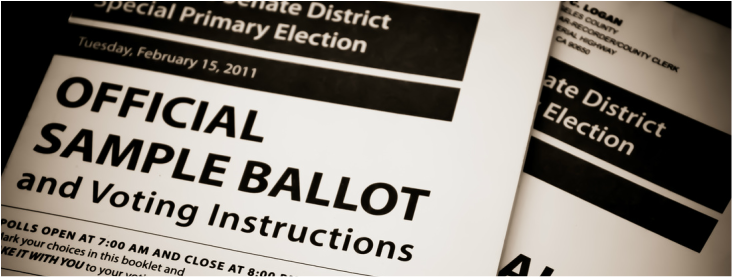The Roundtable
Welcome to the Roundtable, a forum for incisive commentary and analysis
on cases and developments in law and the legal system.
on cases and developments in law and the legal system.
 By Alexandra Aaron Alexandra Aaron is a sophomore at the University of Wisconsin-Madison studying History and Political Science. Do you have “government approved” photo identification? Most people have driver’s licenses, passports or Student IDs from accredited universities or colleges. However, there are many who do not possess these forms of identification. For those who live in Wisconsin, this is now an issue. In 2011, Governor Scott Walker signed a bill into law that would require government-issued or approved picture identification in order to vote. This Republican-backed law has drawn considerable opposition from Democrats and those that view this measure as an attempt to disenfranchise a socioeconomic demographic of low-income voters that are more likely to vote for Democratic candidates. Opponents of the law were quick to challenge its constitutionality. The ACLU filed suit on behalf of Ruthelle Frank against Governor Scott Walker arguing that the law imposes a severe burden on the right to vote, a violation of the 14th Amendment’s Equal Protection Clause. They also charge that it imposes an unconstitutional poll tax on eligible voters in violation of the 14th and 24th Amendments. [1] This past April, a United States District Court Judge issued a permanent injunction against the law, which was quickly reversed by the Seventh Circuit Court of Appeals, allowing the law to take immediate effect. With the 2014 midterm elections imminent, hundreds of thousands of voters are at stake. This ruling will have significant implications this November, particularly for those who endorsed the law—including Walker, who faces a tough general election.
Intended to combat voter fraud, the law’s objective has drawn criticism from those who cite its proponents’ failure to provide more than two instances where fraud occurred in previous elections during litigation. [2] Whether or not voter fraud is in fact an issue in Wisconsin, it’s possible the law intended to solve the alleged problem will disenfranchise an entire class of citizens by creating an economic burden. So, does this law violate equal protection? In the 1890s, Southern states instituted poll taxes and literacy tests designed to disenfranchise African Americans who had, just two decades earlier, been granted suffrage with the ratification of the 15th Amendment. A series of Supreme Court decisions found these measures to be unconstitutional under equal protection, culminating in the 1965 Civil Rights Act that prohibited the imposition of such qualifications. Restricting suffrage to those that could read and write, as a means of measuring competency necessary to participate in the democratic process, was a common measure implemented throughout the 19th century. Requiring photo identification to vote as a means of protecting the democratic process may seem reasonable at first glance. However legitimate its intent, the ramifications of this law merit consideration. It is estimated that this law will disenfranchise 11 percent of eligible voters, [3] including 4.5 percent of African American and other minority voters. [4] Frank, the plaintiff and an eligible voter, is 86 years old and lacks a copy of her birth certificate, which she would need in order to apply for photo ID at the Department of Motor Vehicles. To replace her birth certificate would cost upwards of $200, a sum that she and many others in similar circumstances cannot afford. The legislators who voted this measure into law were, for the most part, not elected by the individuals they have acted to disenfranchise. In November the impact of this legislation on their reelection efforts will be determined. [1] Frank v. Walker: Fighting Voter Suppression in Wisconsin, https://www.aclu.org/voting-rights/frank-v-walker-fighting-voter-suppression-wisconsin (accessed September 20, 2014). [2] New Voter ID Law is Misguided, http://host.madison.com/daily-cardinal/opinion/new-voter-id-law-is-misguided/article_e420e5c6-3eed-11e4-811d-63af9816c67f.html (accessed September 20, 2014). [3] http://www.docstoc.com/docs/document-preview.aspx?doc_id=124501321 (accessed September 21, 2014) [4] Wisconsin Voter ID Law Will Disenfranchise Minorities, Young Voters, http://badgerherald.com/oped/2014/09/18/voter-id-law/#.VCJ1C_ldVps (accessed September 20, 2014) Photo credit: Flickr User Brendan C
1 Comment
|
Archives
May 2024
|
